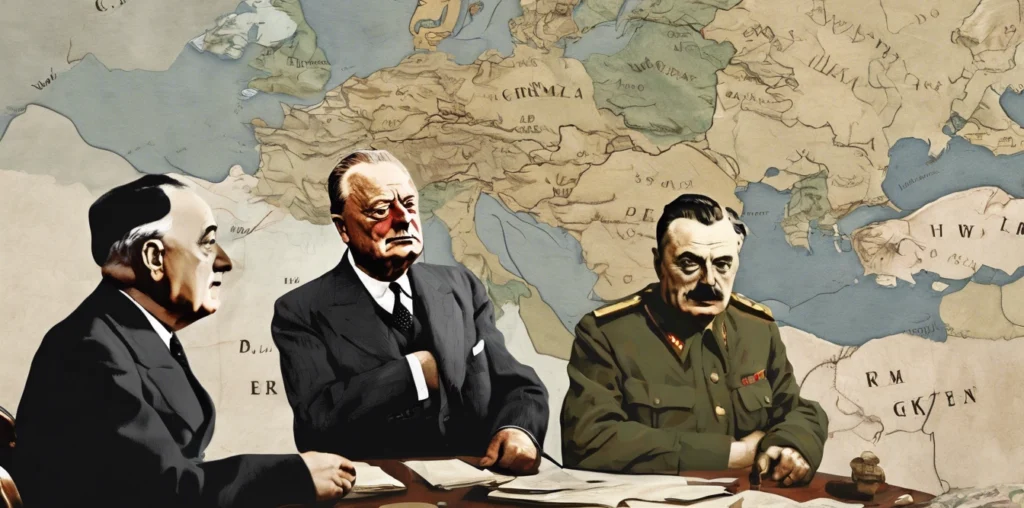Background
By early 1945, World War II was nearing its final months. Nazi Germany was losing ground on both the Eastern and Western Fronts, while the Soviet Red Army was advancing rapidly into Eastern Europe. The Allies—comprising the United States, the United Kingdom, and the Soviet Union—recognized the need to plan for post-war Europe and prevent another global conflict.
Tensions had already begun to rise between Western democracies and the Soviet Union. While all three major Allied leaders—Winston Churchill (UK), Franklin D. Roosevelt (USA), and Joseph Stalin (USSR)—were united in their goal to defeat Hitler, they had vastly different visions for post-war Europe. Churchill was wary of Soviet expansion, Roosevelt hoped to secure Soviet support against Japan, and Stalin aimed to establish influence over Eastern Europe.
What Happened
From February 4 to February 11, 1945, the Yalta Conference was held in Crimea, where the three Allied leaders met to discuss the division of Germany, the fate of Eastern Europe, and the formation of the United Nations. The key agreements reached included:
- Germany’s division – It was decided that Germany would be divided into four occupation zones controlled by the U.S., the UK, the USSR, and France. Berlin, though entirely within the Soviet zone, would also be split among the Allies.
- Soviet involvement in the Pacific War – Stalin agreed to enter the war against Japan three months after Germany’s surrender, in exchange for territorial concessions in Asia.
- Creation of the United Nations – The Allies agreed on the formation of the United Nations (UN) to prevent future global conflicts. Stalin insisted on a veto power for major nations, which remains a defining feature of the UN Security Council today.
- Eastern Europe’s fate – Stalin promised free elections in Eastern Europe, particularly in Poland. However, this promise was ultimately broken as Soviet-backed communist governments took control of Eastern European nations, setting the stage for the Cold War.
While the conference ended on an optimistic note, underlying tensions between the Soviet Union and Western Allies foreshadowed the divisions that would soon emerge.
Impact for the Future
The Yalta Conference played a significant role in shaping post-war Europe and international relations. While it successfully laid the groundwork for the UN, it also intensified the ideological divide between the U.S. and the Soviet Union. The failure to enforce democratic elections in Eastern Europe led to the rise of Soviet satellite states and the eventual Cold War. The division of Germany and the competing visions for Europe fueled decades of geopolitical conflict between NATO and the Soviet Bloc.

